The Kids Aren't Alright: A Look at 16 Teen-centric K-dramas + 1 Film
SKY CASTLE | JUVENILE JUSTICE | EXTRACURRICULAR | TWENTY-FIVE TWENTY-ONE | EXTRAORDINARY YOU | REVENGE OF OTHERS | RACKET BOYS | BOYS OVER FLOWERS | THE GLORY + more
My siblings and I used to talk about how lucky we were to go to school in the United States — not because the education was necessarily better than in South Korea, but because we probably had an easier time as students. We didn’t have to study all the time and still managed to be at the top of our respective classes and get into good universities.
If we had stayed in South Korea, our school days wouldn’t have been over after the last bell rang. Why? Because like most of our classmates, we would’ve headed to hagwons (cram schools). These hagwons are expensive and aren’t available to every student — just those whose parents can afford it or are willing to tackle extra jobs to pay for it. (Pachinko author Min Jin Lee is working on her latest novel, “American Hagwon,” which will explore the importance of education in Korea and to Korean diaspora, I’m guessing.)
Technically, hagwons are optional. But in reality, they’re highly encouraged by school administrators so that kids don’t get left behind.
Graduating from an elite university is a huge deal in South Korea, and obviously not one that everyone can accomplish. Which is why a group of South Korean high school students sued the government after their eight-hour college admission exam (suneung) ended 90 seconds early. That may sound petty, but when children have been studying almost all their life to prep for this exam, they deserve every second they are owed.
To put things into perspective, my cousin’s daughter took the public bus by herself after kindergarten to her hagwon to learn English (and other subjects). She then took the bus back to her Seoul home in time for a late dinner. She was five years old. (Later, she would graduate from Korea’s top school: Seoul National University.)
Honestly? All we did in kindergarten during my era in the U.S. was play, listen to our teacher read to us, take naps and eat snacks. It was heavenly! (Of course, times have changed. My child had homework in kindergarten and learned how to read and write. Which was great, I guess. But there’s also something to be said for just letting kids be little without worrying about their studies.)
Most of the children in my area are enjoying their summer vacation now. Some of the older kids have summer jobs. Others are attending summer school. Most will go away somewhere in these upcoming weeks with their families. But mostly, they are not thinking about the new school year. At all.
With all that in mind, I wanted to write this week’s newsletter with a focus on K-dramas that center on teenagers and/or students. While the scenarios are fictional, there is a grain of truth to what students (and their parents) go through to try to get a leg up on everyone else:
° Crash Course in Romance
° Extracurricular
° Extraordinary You
° The Glory (Part 1)
° Racket Boys
° Revenge of Others
° SKY Castle
If you want to read about more teen-centric shows, check out the anchor links below for K-drama reviews that I’ve published in previous posts:
° Angry Mom
° Boys Over Flowers
° The Glory (Part 2)
° The Heirs
° Juvenile Justice
° Once Upon a Time in High School 📽️
° A Time Called You
° Twenty-Five Twenty-One
° Twinkling Watermelon
° Weak Hero Class One
“SKY Castle”
SKY 캐슬
☆☆☆☆
Han Seo-Jin / Kwak Mi-Hyang (played by Yum Jung-Ah)
Lee Soo-Im (played by Lee Tae-ran)
No Seung-Hye (played by Yoon Se-Ah)
Jin Jin-Hee (played by Oh Na-Ra )
Kim Joo-Young (played by Kim Seo-Hyung)
↑Note: Korean names denote the surname followed by the given name
The first episode of “SKY Castle” was so preposterous that I was either shaking my head in disbelief or laughing.
But after finishing the K-drama, I was left with a little lump in my throat, not because it’s over, but because I know there are so many children out there who are at the mercy of a brutal educational system — where you are told your life means nothing if you don’t get into the SKY schools: Seoul National University, Korea University or Yonsei University.
Of course, most South Koreans don’t graduate from SKY universities and manage to do just fine. But being told that you are a failure at life because you’re not a good test taker — or because you simply are not smart enough — is a brutal way to break a child’s spirit.
“SKY Castle” is what I call a “Melrose Place” drama. As with that American night-time soap opera, there is an evil character who on occasion does something human, and is therefore forgiven by her friends and loved ones. On “Melrose Place,” it was Amanda Woodward (Heather Locklear). Here, it’s Seo-Jin (portrayed by Yum Jung-ah). The wife of a bigwig surgeon and the mother of two girls — the eldest of whom is the smartest in her school — Seo-Jin is the Queen Bee of SKY Castle. The other women either look up to or fear her.
Seo-Jin’s goal in life is to ensure that her daughter, Ye-Seo — played by Kim Hye-yoon of “Lovely Runner” — enters Seoul National University’s Medical School and becomes their family’s third generation of doctors. Ye-Seo’s primary competition is Woo-Joo (Kang Chan-hee), a neighbor she has a crush on, and Hye-Na (Kim Bo-ra), a poor classmate she hates.
She seeks the advice of her friend and neighbor, Myung-Joo (Kim Jung-nan), whose son Young-Jae (Song Geon-hee, who plays the second male lead in “Lovely Runner”) has just been accepted at Seoul National University Medical School. Seo-Jin learns that he had the help of Kim Ju-Young (Kim Seo-hyung), a very expensive, very thorough specialized tutor who guaranteed his enrollment into the prestigious school. That’s all Seo-Jin needed to hear in order to ensure that her child would be a sure thing as well.
Some might say that cold-hearted Joo-Young is the true villian in this series. But without parents like Seo-Jin, she would not exist.
The last few minutes of Episode One were shocking and I will not ruin that surprise here. (Check my Spoiler Alert below if you want to know.)
According to an article in the Telegraph, this series — which clearly is critical of children being put under this type of pressure — has resulted in a subset of parents seeking out academic coaches like the ones depicted in “SKY Castle”:
While the dysfunctional characters in the series add to the parody, the germs of its success lie in the relatable depiction of the crushing pressures of the South Korean education system, which has driven young students to despair and sometimes tragically to suicide.
Central to the plot is Kim Ju-young, a coldly efficient university “coordinator” who once worked as an admissions officer at Seoul National University and who now advises the families privately on how to advance their children through the elite education system.
According to Lee Bohm, an education critic and a founding member of Megastudy, a massive private education corporation, the drama and Ms Kim’s role has generated demand from parents who want to find similar “fixers” to assist their own children.
“It’s obvious that the writers of the drama are being critical, and the reality is exaggerated. However, many people sympathise with the students in the drama because they also went through a similar competitive system,” he said.
“Many parents have started to look for similar services through consultants and I even have people asking me if these private coordinators actually exist.”
Mr Lee, who has worked in the educational field for decades, believes that they do. In a Telegraph interview, he described them as well-connected figures, often with a background in the education field, who operate discreetly in the shadows.
Despite all the cries to “fight the patriarchy,” when you deconstruct this series, you can see that it’s also a condemnation of a woman’s role in Korean society. All these housewives who reside at SKY Castle are educated and (mostly) refined women. But they quit their jobs once they became mothers. (The exception is Lee Soo-Im (played by Lee Tae-ran), who’s a writer. Yay, writers!) Their husbands treat them as glorified servants, whose job it is to get the meals on the table and keep the household running smoothly.
Why? Because, as they keep saying, a working mom doesn’t have the time and fortitude to prepare their children for school, tutors, tests and college. With that in mind, why was it so important for Ye-Seo to do well in school? She could become the most successful doctor in the world. But wouldn’t she be expected to give it all up if she became a parent? Or would she be expected not to become a mother?
And, just to make things clear, there is absolutely nothing wrong with a woman or man choosing to become a stay-at-home parent. The problem arises when your choice is really an order.
Seo-Jin’s younger daughter, Ye-Bin (Lee Ji-won), does everything she can to get her mother’s attention. Because she’s not a great student, she doesn’t get the love and affection that her mom showers on her older sister. Even when she shoplifts for attention, her mother’s concern isn’t, “Why is my child acting out like this?” Rather, she wants to hide the evidence, because it will look bad on her school records.
There are the usual KDrama tropes — prejudice against orphans, parents hitting children, disdain for stepmothers, lazy teachers who only care about results — but there are some truly great moments as well.
My favorite was watching the slow evolution of Professor Cha, an asshole of a husband and father, who is at the risk of losing his entire family unless he agrees to let them exert their right to free will. Played by the excellent Kim Byung-Chul (“Mr. Sunshine,” “Goblin,” “Descendants of the Sun“), Professor Cha is a character you will roll your eyes at and feel empathy for every now and again. By the time he gets around to drunk texting his saintly wife Seung-Hye (Yoon Se-Ah), I was rooting for him. Because how could I not after reading this: “Without you, I am a birch tree alone standing in Siberian blizzard.”
What I really enjoyed about this series is that it shows that life doesn’t have to be one way, just because that’s how it has always been. I loved seeing some of the characters take time off from school — or eschew higher education all together — to get their acts together and/or figuring out how they would shape their own lives.
There are alternatives to being No. 1 in your class. And life goes on for those who fail to make the grade. Literally.
Airdates: JTBC aired 20 episodes (ranging from 60- to 80-minute long) from November 23, 2018 to February 1, 2019.
“Hero”: This is the second K-Drama where I’ve heard “Hero,” a song by the American group, Family of the Year. While not as well placed as in “It’s Okay, That’s Love,” the song lends a melancholy sense of hope in some of the scenes in the final two episodes.
Ratings: By its finale in 2019, “SKY Castle” had achieved the highest rating for any Korean cable broadcasting station (at that time). The previous record holder was tvN’s “Goblin.” As you can see in the chart below, the record has been broken (and “Queen of Tears” has replaced “Goblin” as tvN’s highest rated series).
Spoiler Alert: After reading her son’s diary, blaming his misery on his parents, Myung-Joo commits suicide.
Hye-Na is Ye-Seo’s half sister. Their dad had an affair, but never knew he had fathered a child. Remember how I said that Seo-Jin was the series’ true villian? She knew about this, but didn’t tell her husband during a crucial life-and-death moment. Hye-Na died, without her father having ever known she was his daughter. Make no mistake about it: This dad was an asshole, too. He only felt remorse once he learned it was his flesh and blood he let die, rather than some anonymous patient who deserved the same care as the rich and connected.
As for Kim Joo-Young, she got her crazy on after a university classmate bettered her in becoming the youngest professor in Korea. Her weird idea of revenge was to move to Virginia and raise her child, Kay, to become a genius. When the pressures of being a 9-year-old college student was too much for the little girl, Joo-Young’s husband threatened divorce. Before that could happen, Joo-Young had the brakes on her husband’s car cut, which killed him. The accident also permanently damaged Kay, who would live the rest of her life mentally handicapped.
© 2024 JAE-HA KIM | All Rights Reserved
“Revenge of Others”
3인칭 복수
☆☆☆☆
Ok Chan-mi (played by Shin Ye-eun)
Ji Soo-heon (played by Park Solomon)
↑Note: Korean names denote the surname followed by the given name.
“If everyone decides to corroborate a lie, then it becomes the truth.”
One of the characters in the K-drama “Revenge of Others” says this near the end of the series. And in many ways, it sums up the thesis of this high school revenge series, which is a murder mystery with twists and turns. And though I guessed early on who the murderer was, I didn’t anticipate the why.
The series starts off with Chan-mi on a videocall with her twin brother Chan-kyu (Kang Yeol). She is in Busan, where she resides in an orphanage. He lives in Seoul, after having been adopted by a Christian couple. Shortly after he prematurely ends their call, he apparently jumped out of a school window. Despite her pleas to investigate the case as a murder, the police rule it as suicide. Since they won’t investigate further, she decides to figure it out for herself by transferring to her brother’s high school.
Disgusted by his sin, Chan-kyu’s adoptive parents consider his death an embarrassment to them. You can already tell what kind of parents these people are. Though they may have given him a home and a new name, they had no issue separating him from his sister, who he had grown up with before he was adopted around the age of seven.
Meanwhile, Soo-heon lives alone above a MMA gym where he works part time when he’s not in school. He is the sole provider for his hospitalized mother, who has never gotten over her eldest son’s suicide. After Soo-heon is diagnosed with an inoperable brain tumor and is given an ambiguous diagnosis of six months to who knows how long, he teams up with a friend to earn money by beating up a former classmate who raped another student.
The series is sold as revolving around his vigilante jobs for hire. But in reality, it’s about how teens band together to mete out justice after authorities fail them. As a police detective points out in the show, the teens are always one step ahead of them in figuring out what’s going on.
Soo-heon and Chan-mi’s friends, allies and enemies include Oh-sung (Chae Sang-woo), the son of the police commissioner who may or may not be involved with Chan-kyu’s death; his stepsister Ji-hyun (Lee Soo-min), who’s jealous of Soo-heon’s friendship with Chan-mi; and Oh-sung’s BFF Jae-beom (Seo Ji-hoon), the chaebol son who recently awoke from a half-year coma with little recollection of his previous high school years.
Shin Ye-eun is spectacular as Chan-mi, hitting all the right notes with just her facial expressions. (She exhibited these same skills as the frightening alpha high school bully in the hit K-drama “The Glory.”) Park Solomon is also very good as the stoic hero who may not be who he seems. Park’s “All of Us Are Dead” co-star Jin Ho-eun is wonderfully despicable as the high school rapist. I was more used to the actor playing nice guys, as he did in “Recipe for Farewell,” “Shooting Stars” and “Nevertheless.” And a special shoutout to Seo Ji-hoon, who added nuance to his layered role. He has more than lived up to his impressive 2016 debut in “Signal.”
Airdates: Twelve 60-minute episodes aired on Disney+ in South Korea from November 9 to December 14, 2022.
Spoiler Alert: Jae-beom also had a twin brother, Jae-jin, who died when he was 14. After his death, Jae-beom was psychologically scarred and developed dissociative identity disorder. He was living as both himself and Jae-jin. Jae-beom is kind and a friend to everyone. He’s also right handed. Jae-jin is volatile (and left handed, which was a clue in the death of one of his former middle school classmates). I had suspected that it was Jae-beom who had pushed Chan-kyu out the school window, because his character was too good to be true. But the introduction of his personality came as a surprise.
Oh-sung was privy to his friend’s split personalities via Jae-beom’s mother, who confided in him, but didn’t tell her own son. (Whhhyyyy would she do that? To be helpful, for sure, but it’s so gross that she withheld that information from her own child, who was legally an adult and deserved to know the truth.) He uses Jae-beom’s secrets to manipulate him, just as he had manipulated Chan-kyu after catching the latter kissing his boyfriend.
Chan-kyu had been a well-liked student, until Oh-sung forced him to bully other classmates in exchange for keeping his sexuality a secret.
Throughout the show, same-sex attraction is acknowledged as something to be hidden. Everyone has a crush on Soo-heon. And Jae-beom’s friendship with him appears to trigger Oh-sung’s raging jealousy.
All of the trauma was caused by a boy’s inability to come out. We can talk all we want about how South Korea is prejudiced towards the marginalized LGBTQ community, because it’s the truth. But it’s also an unfortunate scenario that’s all to familiar in many countries, including the United States.
© 2024 JAE-HA KIM | All Rights Reserved
“Extracurricular”
인간수업
☆☆½
Oh Ji-Soo (played by Kim Dong-Hee)
Bae Gyu-Ri (played by Park Joo-Hyun)
↑Note: Korean names denote the surname followed by the given name.
“Extracurricular” starts off strong, telling the story of a high school boy who found an ingenious (and illegal) way to save money to attend a prestigious university. With his puppy dog eyes and mousy demeanor, you can’t help but want to protect him in the beginning. But as the storyline develops and viewers learn how he has rationalized his behavior, I saw him in a less favorable light. The plot peaks halfway through the series, before relying on a string of cliches and gory violence to hold the viewer’s attention. The loose ends are left dangling … like the protagonist’s meaning in life.
Perhaps that was the point of this dark series. Sometimes, things get so out of hand that there is no way to neatly resolve it.
Ji-Soo is a straight-A student who has a crush on a popular rich girl, Gyu-Ri. Though just 16 or 17, he lives by himself. His mother abandoned the family years ago and his father is a chronic gambler, who visits Ji-Soo every now and again when he needs money. Ji-Soo lives in a small apartment and pays all his own expenses, including the $2,500/month hagwon fees (cram schools that most Korean children attend so they can get into the best universities).
Ji-Soo’s dream is to graduate from Seoul National University — South Korea’s most prestigious school and the most difficult one to get into — get a job that pays well, get married and have children. He has no career goals. He just wants stability. On his wall, he has a hand-written note reminding him that he has to go to a SKY school. SKY stands for the three top universities in Korea: Seoul National University, Korea University or Yonsei University.
In a nice casting meta moment, the boy is played by Kim Dong-Hee (last seen in “Itaewon Class“) — who had a co-starring role as a high school student in the superb 2018-2019 K-Drama, “SKY Castle.” In that series, he was a a pampered twin with wealthy parents.
Soon enough, we will learn how Ji-Soo pays for his modest life.
There’s a story to be told about the haves and the have nots. But this series isn’t the one to do it. I’m not sorry I watched it, but it fell short of my early expectations.
Since just about everything I write from this point on will be a spoiler, I’ll continue the rest of my review after this photo of the main characters (clockwise): Ji-Soo, Min-Hee (played by Jung Da-Bin), Ki-Tae (played by Nam Yoon-Soo) and Gyu-Ri.
Spoiler Alert: Despite Ji-Soo’s protests that he’s not a pimp, that’s exactly what he is. He created an app that hooks up customers with young women looking for compensated dates. He doesn’t provide prostitution, he tells himself, but rather protection for the sex workers. Each woman is given a bracelet that can be triggered to alert their bodyguard. Played by Choi Min-Soo — last seen eating up the scenery in “Lawless Lawyer” — Whang-Chul is a grizzled former combat veteran who is fiercely loyal to Ji-Soo, whom he has never met in real life. Actually, no one has. Knowing no one would trust a teen, and also wanting to protect his anonymity, Ji-Soo uses an altered voice for his illicit business and is known by the codename Uncle, which makes him sound like a middle-aged man.
The series began to unravel for me when Gyu-Ri easily uncovers Ji-Soo’s secret. Yes, I understand that he is a teenage boy and that children are careless. However, this is a boy who has masterminded a prostitution business, where he protected his anonymity and was able to save more than $60,000 in one and a half years. I found it really difficult to believe that a boy that smart and driven would leave that much evidence for anyone to find, let alone another high school student.
It’s easy to make Gyu-Ri the villain. She doesn’t need money, but wants part of Ji-Soo’s action. She’s bored and wants some excitement outside of the life her parents have etched out for her. She even suggests selling some of her male friends into prostitution and later sets up a failed idol trainee to be their first male sex worker. Without her intrusion, Ji-Soo would’ve continued in his quiet life of crime and used his straight A’s and money to attend one of the SKY schools. But despite all his protests, what he did wasn’t any better. To get himself out of his squalid situation, he profited off of selling women’s bodies, including Min-Hee — an underage classmate who used her earnings to pay for the extravagant gifts her boyfriend, Ki-Tae, wanted.
By the end of the series, it’s clear that Ji-Soo will never be normal again. The question for the viewers is, does he deserve to be?
Airdates: All 10 episodes released on Netflix on April 29, 2020. Each episode ranges from 44- to 72-minutes long.
Nth Room: This series was already in production when the Nth Room scandal rocked South Korea, with news that a group of young men had profited from sexually exploiting and physically harming women and children. As such, the producers ended each episode with a list of organizations that viewers could reach out to if they felt hopeless and/or needed help.
© 2024 JAE-HA KIM | All Rights Reserved
“Racket Boys”
라켓소년단
☆☆☆☆
Yoon Hyeon-Jong (played by Kim Sang-Kyung)
Ra Yeong-Ja (played by Oh Na-Ra)
Yoon Hae-Kang (played by Tang Joon-Sang)
Lee Yong-Tae (played by Kim Kang-Hoon)
“Racket Boys” is a sweet series centering around a teenager, who’s forced to quit baseball when his father moves them from Seoul to the countryside. Disappointed and bitter, Hae-Kang begrudgingly joins the badminton team — which his father coaches — on the condition that if the team wins a medal, his dad will get them Wi-Fi at their house.
Speaking of their house, it becomes the de facto dormitory for the boys’ team, as well as the two best players on the girls’ team, which Hae-Kang’s mother coaches. A former champion for South Korea, she is as highly regarded as his father is dismissed for his goofy behavior.
Given his pedigree, it’s not much of a surprise when we see that the highly competitive and fearless Hae-Kang is an ace at badminton (just as he was at baseball).
One of the things I loved about this character was his confidence. A Middle Schooler, he’s at the age when children question their own abilities. But this boy’s cockiness manifests as a way of reminding people that of course he’ll get the job done. After all, he’s the great Yoon Hae-Kang, as he declares when people question his abilities.
And sometimes, that confidence is what makes the difference between winning first place and leaving a tournament without a trophy. He does not give up and isn’t afraid to face bullies. When he shows up with his face bruised from a beating, his mother appears relieved that he was on the receiving end rather than the one doling out punches. The implication is that he hasn’t always been the perfect kid, but he has grown up and matured.
Though Hae-Kang initially looks down on the badminton team, he grows to appreciate and care for them, especially after seeing how much they care for him and his family. There is a scene where his baby sister has an allergic attack. Her parents are at work and Hae-Kang is out buying her treats. So his teammates take turns carrying her on their backs to the nearest hospital…which isn’t near at all.
Most of the actors look like they should at least be in their final years of high school. Only Kim Kang-Hoon looks like a Middle School student (because he is in real life). Regardless, they do a good job of selling their parts.
There is a forced romance between Hae-Kang and teenage badminton star Se-Yoon (Lee Jae-In) that is cute in its depiction of first love (or, rather, a first crush). But the actress had a thankless role of playing a character who, for the most part, was directed to be expressionless. There was so much potential for her character though. When she is given the opportunity to express her emotions, Lee Jae-In is heartbreaking in her honesty.
I adored the closeness of the villagers, who know that no one wants to live in the country anymore. They all head to Seoul or other metropolitan areas. Many who return look down on them as country bumpkins.
Trivia: One of the funniest elements of this series was the casting. Woo Hyun (third from left) plays the head of the village. The actor was born in 1964. Cha Mi-Kyung (second from right), who was born a year later, plays a grandma, whom he addresses with honorifics (implying that his character is much younger than hers). Woo has one of those delightfully expressive faces that tells a story without saying a word.
Airdates: Sixteen episodes (ranging from 60 to 86 minutes each) aired on SBS from May 31 to August 9, 2021.
Spoiler Alert: There are some poignant moments in this K-drama that depict how materialistic children can be. For instance, in Episode 4, Hae-Kang has a flashback to his early badminton days when he led his team to a first place championship. His father was their coach. And to celebrate their win, Hyeon-Jong sent over burgers for the boys. But instead of being grateful for the treat, the kids complained that their coach didn’t even buy them barbequed beef. Hae-Kang saw that his teammates had thrown all the burgers in the trash bin. When his father calls to ask if they liked the burgers, Hae-Kang lies to him to spare his feelings. But it seemed like that incident — as well as the attention awarded to the school’s baseball team, which only earned 4th place — encouraged him to quit badminton and join the baseball team instead.
#TW: A couple from Seoul move to the village. Their intention isn’t to live the quiet life. Rather, they plan to die by suicide together. The story arc depicting how they find a life worth living in the village was moving and beautiful.
© 2024 JAE-HA KIM | All Rights Reserved
“Extraordinary You”
어쩌다 발견한 하루
☆☆☆☆
Eun Dan-Oh (played by Kim Hye-Yoon)
Ha-Ru (played by Rowoon)
Baek Kyung (played by Lee Jae-Wook)
↑Note: Korean names denote the surname followed by the given name.
Set in a prestigious high school, “Extraordinary You” is a thoroughly enjoyable K-Drama that centers around a popular girl and her fiancé. He’s as ambivalent about her as she is head over heels for him.
But wait. Dan-Oh realizes soon enough that they are all characters in a manhwa and that she doesn’t have the perfect life she had assumed she had. Still, she’s happy thinking that she’s the epicenter of the comic book.
Plot twist: That’s not in the cards for her, either. She is just a secondary character who was created to be the best friend of the real female lead.
Saddled with a plot line that includes pining for her coldfish fiance, Kyung (Lee Jae-Wook from “Memories of the Alhambra” and “Search: WWW“), and a heart disease that surely will lead to her early death, Dan-Oh makes it her life’s mission to change her storyline and find true love.
This is the part of the series that I really liked. No one is going to mistake their own lives for a comic book character’s. But I found the message of creating your own destiny — or at least attempting to, rather than settling for what you’re told you’re supposed to be — to be inspirational. As Dan-Oh grows more self aware each day, she speaks out about how ridiculous the manhwa writer is to rehash plotlines that may have been appropriate in a previous century (teenagers being engaged to marry), but certainly not in 2019 (when this series originally aired).
As Dan-Oh, Kim Hye-Yoon hit all the right notes. Unlike many actresses who have perfected crying pretty tears, Kim shows how gut wrenching it can be when you think you’ve lost a loved one. Grief isn’t pretty and it was refreshing to see it presented in a realistic manner.
The fact that they cast Kim, who was outstanding in “SKY Castle,” was astute. She is a talented actress whose work in “SKY Castle” is fresh on viewers’ minds. They will remember her from her role as the diehard student who stopped at nothing to get into the top medical school in Korea. That series dealt with the pressures families place on their children to get into the best schools, regardless of the kids’ own desires.
As for Dan-Oh’s romance with No. 13 (played by SF9’s Rowoon), it is slow and sweet. She learns that he’s a mere extra in the manhwa, until she gives him a name (Ha-Ru) and helps transform him into a more important character in the plot.
The overall message of “Extraordinary You” is that we are all extraordinary in our own way. At first, Dan-Oh simply wanted to be the star of the series. But she grew to realize that what she really wanted was to have ownership of her life, rather than following others’ expectations of who she should be.
There was some irony that her best friend was also one of the school’s biggest bullies. Though she was a great and supportive friend to Dan-Oh, she was cruel and petty to the pretty and poor scholarship student who her crush liked.
On the surface, this series shares similarities to Lee Jong-Suk’s “W,” which is also set within a manhwa. But while that series was more of a thriller, “Extraordinary You” takes an everyday setting (school) and turns it into an extraordinary experience.
Airdates: MBC aired 32 episodes, each about 35-minutes long, from October 2 to November 21, 2019.
Spoiler Alert:
There’s a manhwa within a manhwa. The comic book writer regurgitated much of his material, putting the same characters in different settings and eras, but with the same basic plotline. Some of the characters were able to forget the duplicity of their past lives, while others were cursed to remember it in their modern-day incarnations.
© 2024 JAE-HA KIM | All Rights Reserved
“Crash Course in Romance”
일타 스캔들
☆☆☆☆
Nam Haeng-sun (played by Jeon Do-yeon)
Choi Chi-yeol (played by Jung Kyung-ho)
↑Note: Korean names denote the surname followed by the given name.
“Crash Course in Romance” is about an elite hagwon math tutor who is so popular that mothers lineup at all hours to get their children seats at his lectures. By chance, he encounters a former national handball player who gave up her dreams of competing on an international level to care for her niece, who was abandoned by her mother.
Raised by a loving mom (played by the cantankerously delightful Kim Mi-kyung) who ran a local restaurant, Haeng-sun opens up her own neighborhood banchan shop, selling delicious homemade side dishes for her busy customers. After tasting her food, Chi-yeol — who has digestion issues and can’t eat much of anything without getting sick — is surprised that not only does he love her banchan, but the flavors remind him of his simpler past.
You know where we’re going here, right? Of course you do. But this mathematics genius doesn’t put 2+2 together for a long time: Haeng-sun is the daughter of the woman who fed him when he didn’t have enough money to buy a meal.
This is where I believe I differ from many viewers, who found this burgeoning romance between this middle-aged couple cute. Their romance — which lacked any chemistry — was the least interesting part for me for a variety of reasons. But mainly, I don’t believe he would ever have fallen in love with her if not for her cooking, or that she would’ve been enamored with his cold personality. They didn’t like each other at all in the beginning and had nothing in common. And while that’s a common K-drama trope, it felt inauthentic.
If anything, the nuanced friendships between the students felt so much more real, because they relied less on tropes. Their story arcs evoked memories of how intense everything can be when you’re a teenager.
One of the things I dislike in K-dramas is when characters repeatedly tell the viewers how we should view someone’s appearance. For instance, we are told nonstop how handsome Chi-yeol is, as if we don’t have eyes of our own to make our own assessment. And I say this as someone who is old: We are continually told how Haeng-sun appears much too young to be the mother of a 17-year-old student. In real life, Jeon is 50 and older than the other actresses (like 39-year-old Hwang Bo-ra) playing moms of high school juniors. And in this role, where she isn’t made up to look glamorous, she looks about 45 or 50. An adorable, fit 50, for sure. But there is absolutely nothing wrong with not looking 30 when you’re no longer that age.
We have grown so accustomed to seeing very young women playing mothers that viewers forget what the mom of a 17 year old may actually look like. I remember an interview I did with Chris Isaak when he landed a starring role opposite Keanu Reeves and Bridget Fonda in the feature film “Little Buddha.” Then 37, he said he almost didn’t get cast because the filmmakers thought he looked too young to be the father of a 9-year-old boy. Meanwhile, Fonda — then 29 — was deemed the appropriate age to play the child’s mother. Make it make sense.
BTW, don’t take this as me saying, But…but…Jeon Do-yeon is ollllllddddd! She is a skilled queen, who won Best Actress at the 2007 Cannes Film Festival for her leading role in Lee Chang-dong’s “Secret Sunshine.” She is amazing and has so much range to tackle just about any role. I think the script did her a disservice by not allowing her to own an age closer to reality. And, yes, I know why they did this. She would’ve been 33 when her niece was born, and that’s not as dramatic as having a woman in her early 20s become the child’s de facto mother.
Which leads me to the next point. To spare Hae-yi (played by Roh Yoon-seo from “Our Blues”), who will be ostracized for not having a real mother, Haeng-sun pretends to be her birth mother rather than her aunt. And when Haeng-sun and Chi-yeol are faced with an adultery scandal (because everyone assumes Haeng-sun is married), Hae-yi reveals that her aunt became her parent after her mom abandoned her. This becomes fodder for the competitive bitchy mothers, who say that of course that’s why Hae-yi is having some issues. It’s because she wasn’t raised by her real mother.
And it’s an attitude that’s reflected in Haeng-sun’s own thought process.
There are other issues addressed here, some that work better than others. There is a murder mystery, with a false suspect set up early and a clever storyline that hides the real culprit’s identity for most of the series. The story arcs involving students who are pressured to excel in school are balanced by subplots showing that some of the teenagers are just fine knowing their grades aren’t good enough to get into one of the SKY schools. And as with “Green Mothers’ Club” — which I watched almost concurrently with this series — “Crash Course in Romance” reinforces that excelling in school isn’t necessarily what’s best for the child, especially when the mothers are using their kids’ top grades as bragging rights to bolster their own self esteem.
There’s also a character who has Asperger’s syndrome that I’m not quite sure how I feel about. Jae-woo is Haeng-sun’s younger brother. Played by Oh Eui-shik — who was very good in “Romance is a Bonus Book,” “While You Were Sleeping,” “The Hymn of Death” — Jae-woo doesn’t come across as believable to me. It felt like his character was added in after the success of “Extraordinary Attorney Woo” and “It’s Okay to Not Be Okay,” which featured autistic characters, and “Move to Heaven” — where the protagonist has Asperger’s syndrome. (People who are more informed about Aspergers, please share your opinions in the comments below!)
I know that what I’ve written so far doesn’t indicate why I am giving this K-drama such a strong rating. It’s because despite some of the tropes that didn’t work for me, I looked forward to new episodes every week to see what would happen next. I liked that the series focused on older actors, rather than a pair of 20somethings. And when they did focus on the children, I appreciated that the series made a statement about what real-life Korean children go through to compete not only with each other, but with their mothers’ expectations.
And while I could go into the sexism of this series making the moms out to be the villains, there is some truth to this not only in South Korea, but in countries like the United States, where the mothers are expected to take a more active role in their children’s education than the fathers.
Airdates: Sixteen 70-minute episodes aired from January 14 to March 5, 2023 on tvN.
Spoiler Alert: The murderer is Chi-yeol’s trusted right-hand man, Dong-hee (Shin Jae-ha). After his sister died by suicide and their abusive mother punished and pushed him to excel, Dong-hee pushed her off their balcony. After Chi-yeol showed him kindness at his sister’s funeral, Dong-hee transferred all of his grief and admiration to Chi-yeol — who he felt was the only adult he could trust. He kills off anyone he believes is threatening Chi-yeol. And when he sees how important Haeng-sun has become to Chi-yeol, she becomes Dong-hee’s next target. Once he’s confronted by Chi-yeol, he says he has nothing to live for and jumps off the hospital rooftop to his death.
Shin Jae-ha is soooooooooooooo good at portraying this serial killer that as I watch him in the second season of “Taxi Driver” — where I think his kind character is not deceptive — I keep wondering if he will show a duplicitous side later that hasn’t been previously hinted at.
In the final episode, Hae-yi announces that she will move to Japan with her birth mother (played by Bae Hae-sun). It’s clear she is only doing this so that her aunt and Chi-yeol can have an uncomplicated life together. Her selfish mother finally does a selfless act and leaves for Japan without her, knowing that Hae-yi’s home is with Haeng-sun. While this was meant to be a beautiful moment, the plot didn’t reflect on the emotional damage this can cause Hae-yi at now having been abandoned twice by her mother. Yes, this is what was best for Hae-yi, but that doesn’t mean there aren’t issues to be addressed.
There is a happy ending. Haeng-sun and Chi-yeol propose to each other, she passes her exams to become a sports teacher, Jae-woo finds love with Haeng-sun’s best friend Young-joo (Lee Bong-ryun), and Hae-yi and her best friend Seon-jae (Lee Chae-min) finally begin to date.
© 2024 JAE-HA KIM | All Rights Reserved
"The Glory" (Part 1)
더 글로리 ☆☆½
Moon Dong-eun (played by Song Hye-kyo)
Ju Yeo-jeong (played by Lee Do-hyun)
↑Note: Korean names denote the surname followed by the given name.
"The Glory" had so much promise — a strong leading lady (Song Hye-kyo), a skilled screenwriter (Kim Eun-sook), the backing of Netflix's money, and the promise of a scintillating revenge thriller. And yet at the end of the eight-episode first half of the season — stop doing this, Netflix! — I found myself underwhelmed. [ETA: the second half of this season is much, much better.]
While the protagonist talked a lot about her need for vengeance, a good portion of the story arcs ultimately fall flat.
This K-drama begins with excessively extreme school violence. To refer to it as bullying is undermining what these psychopath teens do to Dong-eun. As a high school student, she was brutally assaulted regularly at school by the privileged students and their sycophantic minions. They burned her arms, legs and back with a curling iron. They sexually assaulted her. They kicked and beat her.
When she reported her sadistic classmates to the police, the authorities sided with the students' rich parents, who said friends always get into little tiffs with each other. When she dropped out of school, her homeroom teacher beat her for reflecting poorly on him. And none of the dozens of other school personnel who witnessed this did a damned thing to stop the abusive teacher. They just ... let it happen. Her only adult ally was the school nurse, who was fired before she could help Dong-eun in any meaningful way.
The show's best moments are when Jung Ji-so portrays the teenage version of Dong-eun. Jung convincingly conveys the fears of a victim who knows that no adult will help her. And no student will side with her, because they don't want to become the next victims. The school and police have already failed her. And her absent mother willingly signs over her consent to not pursue any charges when the head bully's mom gives her a measly $700 in compensation to remain quiet.
Song's stoic portrayal of Dong-eun in her 20s and 30s is less effective. But when she's allowed to express Dong-eun's no-bullshit attitude, she showcases what she could've done. When she refuses to play along with a creepy fellow teacher, he tells her she's lucky she's not a man, because otherwise he would've hit her ... and then says he's joking. She replies, "Really? Because you look like the type of man who'd only hit a woman." Then she brightly smiles and cutely says, "I'm just joking, just like you did."
And when medical intern Yeo-jeong falls for her at first sight, it's not clear why. Is it simply because she's pretty? Or is he attracted to her because she shows no signs of romantic interest — at least initially — in him? She does want to use his knowledge of Go/Baduk, which she knows will be beneficial when she attempts to weaken the marriage of her chief tormenter Yeon-jin (Lim Ji-yeon), who is now a well-known on-air weather forecaster.
From the time she drops out and earns her GED, Dong-eun's plan is to punish her high school perpetrators, especially the ringleader Yeon-jin. She works non-stop so she can pay for college. She becomes a teacher. She keeps tabs on what school Yeon-jin's child enrolls in. And then she ingeniously blackmails her way into becoming the new teacher in the little girl's class.
It's a clever premise. Instill fear in Yeon-jin by showing her that you can harm her child almost any time she wants to. Is Dong-eun likely to do that? Probably not. But who's to say? When she tells Yeon-jin not to use her influence to get her fired, or to transfer her daughter to another school, Yeon-jin listens.
But why though? Maybe she can't get Dong-eun fired, but what recourse would Dong-eun have if the child did enroll at a different institution? Would Dong-eun follow each time the child went to a new school? And if she did, wouldn't Yeon-jin and her rich husband have everything they need to file a harassment or stalking charge?
In one of the more absurd sub plots, Dong-eun enlists the aid of Hyeon-nam (Yeom Hye-ran), a neighborhood ajumma who has just one tiny condition: Once Dong-eun has gotten her revenge, she must kill Hyeon-nam's abusive husband, too.
Um, what? But Dong-eun agrees to it.
It was at this point that I wondered about something the rich high schoolers had said to Hye-jeong, who was Yeon-jin's high school friend/lackey. She was always viewed as less than by her rich peers because her family's not wealthy. They told her that if they hadn't chose Dong-eun to be their victim, they would've picked her to torture instead.
Had that scenario played out, would Dong-eun have capitulated in the high school version of the Milgram experiment? Would she have abused Hye-jeong when ordered to do so to evade being beaten herself? Would you have?
Around the same time I watched this, I was engrossed in "Weak Hero Class 1" and "Reborn Rich" (which stars Song's ex-husband Song Joong-ki). The former also dealt with high school bullying, while the latter addressed reincarnation as a means for vengeance. Both were superior K-dramas with vigorous storylines that offered plenty of suspense.
For the second season, I'm hoping that everyone involved in torturing Dong-eun — including the faculty at her old high school — are severely punished. And that Dong-eun is able to get justice without losing herself.
Trivia: Song Hye-kyo and screenwriter Kim Eun-sook first worked together in the 2016 series "Descendants of the Sun."
Airdates: Eight episodes — each about 50-minutes long — dropped on Netflix on December 30, 2022. You may read about the second season (which is much better!) and why bullying is such a big plot device in Korean shows here.
Spoiler Alert: Near the end of the first season, Yeo-jeung offers a platitude along the lines of, "It's better to forgive." Dong-eun takes off some of her clothes to reveal the scars that cover her body. She asks if plastic surgery can remove the physical damage. (He's conveniently a plastic surgeon.) He is enraged by what he sees and says he'll do anything to help her — even kill. This seems so out of character.
Though Yeo-jeung has his own trauma — his father had been murdered by one of his patients, who now sends him letters from prison — he is not a murderer. Or maybe he is. We'll hopefully learn more of his backstory in March when the second season airs.
© 2024 JAE-HA KIM | All Rights Reserved
© 2024 JAE-HA KIM | All Rights Reserved






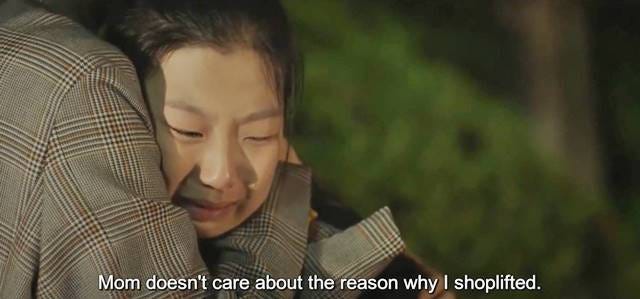

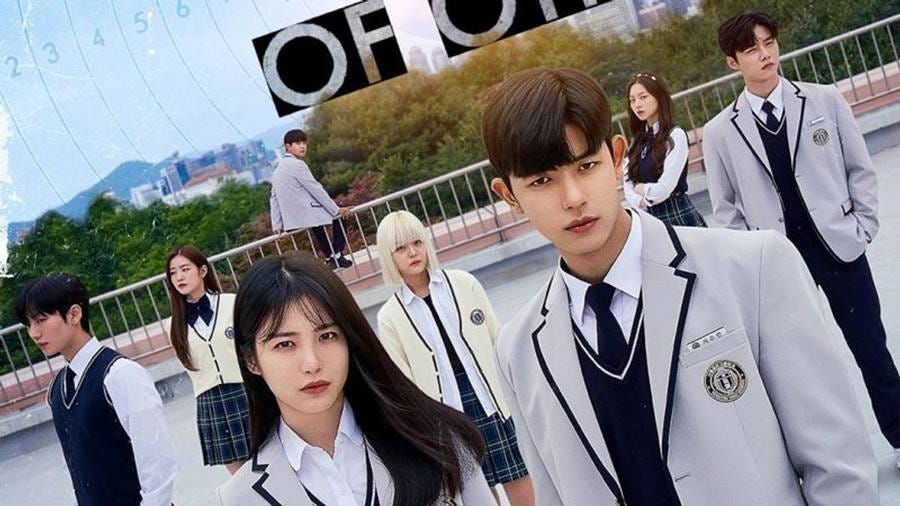
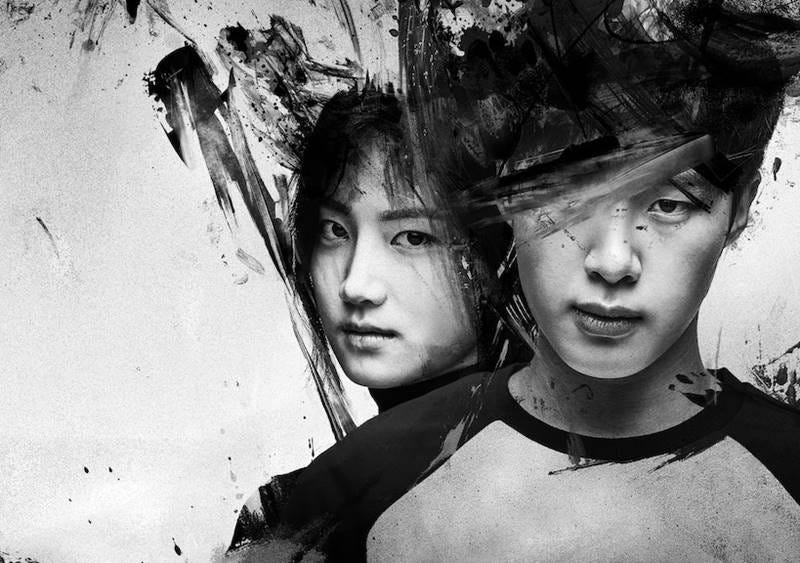


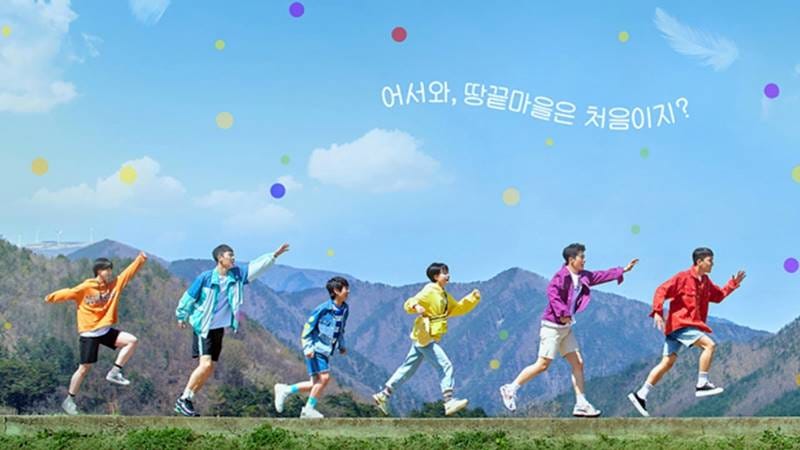
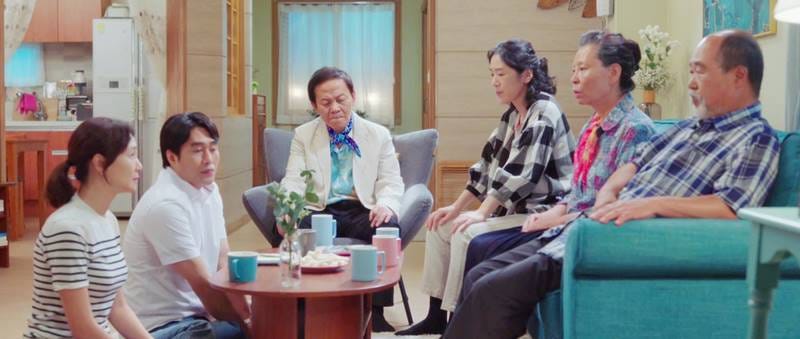

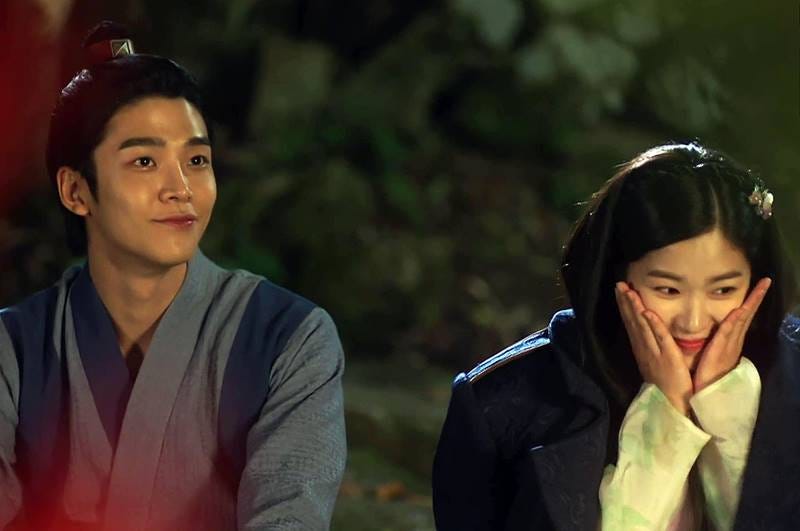
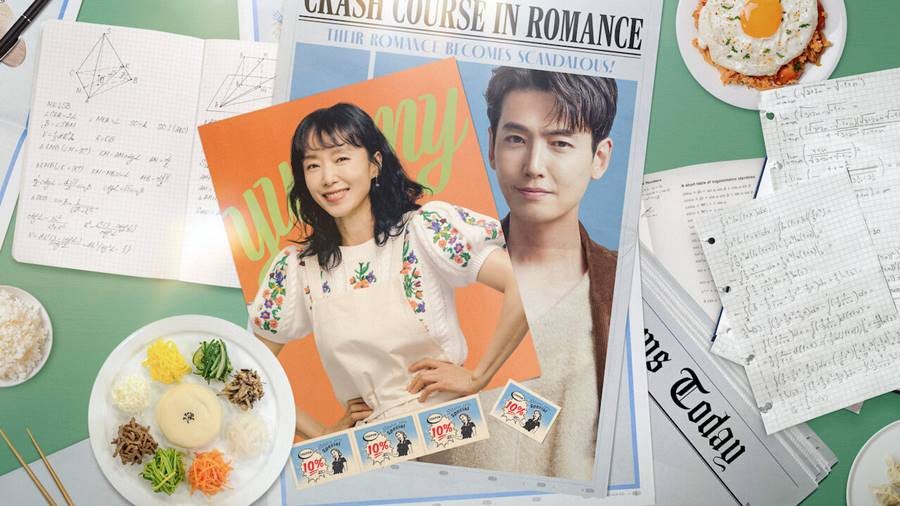
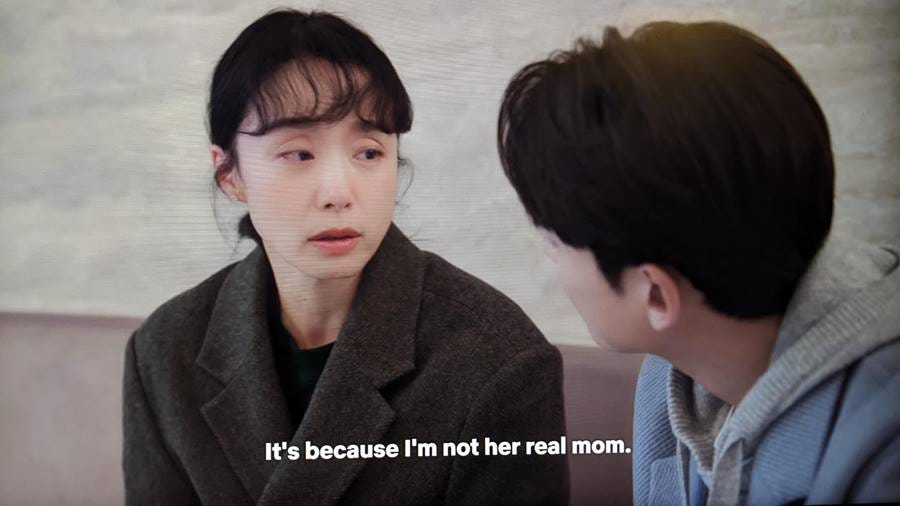
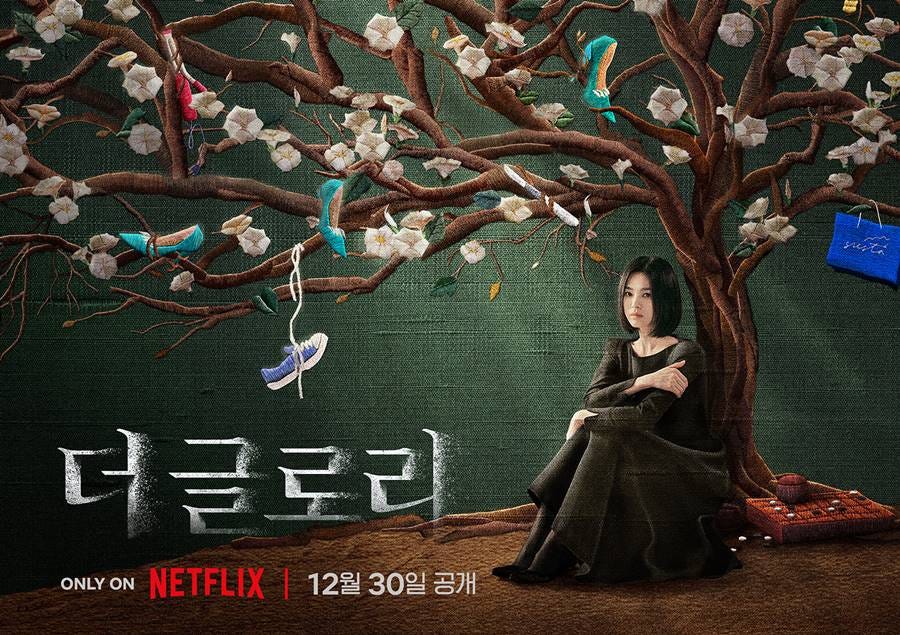

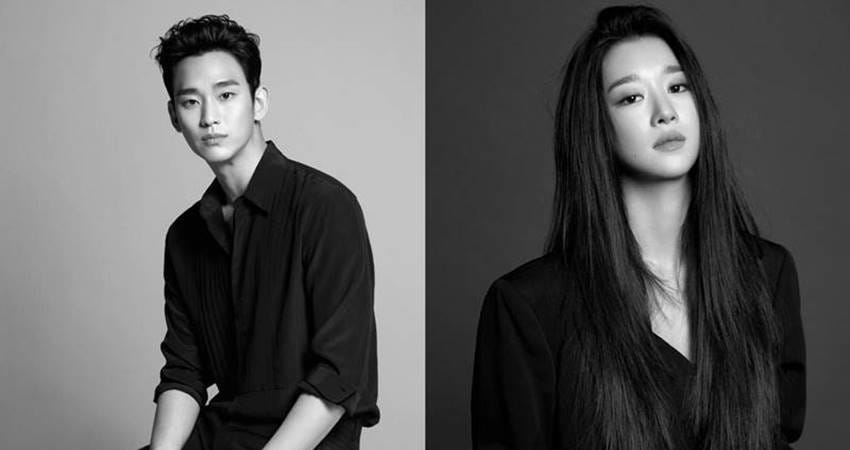
I remember as a child, I was terrified at that national exam that every high school student took to get into college. I don't know if this was a myth or exaggeration, but as I recall, if you did poorly, you didn't get to go to college at all. It was different than the SATs or ACTs... It wasn't an aptitude test but rather a nationwide entrance exam. Is that still the case in Korea?
Luckily, my sisters and I left before any of us had to take it! Also, I got out of the mandatory military service, which was another source of consternation...
Great reviews as always- as for Extracurricular, I think the whole thing was made to be like watching a train wreck in slow-motion, on purpose. I didn't want the characters to come out healed or hopeful they needed to continue and any redemption wouldn't happen where we could see it- the final pull back out of the city scape was for me, telling. This series reminded me of the John Cusack movie "Grosse Point Blank" one really dumb mistake and you knew it wasn't going to end well but you just had to keep watch eyes riveted with horror.